-
Friday 24 February, 18:00 h
Session 1
Presented by David Lamelas.
Time as Activity-Düsseldorf, 1969. 16 mm, b&n, 13’
Time as Activity-Berlin, 1998. 16 mm, colour, 29’. Courtesy of Jochen Kienzle, Berlin
Time as Activity-Warsaw, 2006. 16 mm, colour, 22’ 15’’
Time as Activity-Los Angeles, 2006. 16 mm, colour, 10’
Time as Activity-Sankt Gallen, 2007. 16 mm, colour, 12’ 44’’
Time as Activity-New York, 2007. 16 mm, colour, 9’ 40’’
Time as Activity-Buenos Aires, 2010. 16 mm, colour, 15’
Time as Activity-London, 2011. Digital archive, colour, 16’ 46’’
Time as Activity-Milan, 2013-2014. Digital archive, 24’ 20’’
Time as Activity-Naples, 2013-2014. Digital archive, 17’ 24’’
Time as Activity-Madrid, 2017. Digital archive, colour, 15’
-
Saturday, 25 February, 18:00 h
Session 2
Presented by David Lamelas.
Time as Activity-Madrid, 2017. Digital archive, colour, 15’
Time as Activity-Naples, 2013-2014. Digital archive, 17’ 24’’
Time as Activity-Milan, 2013-2014. Digital archive, 24’ 20’’
Time as Activity-London, 2011. Digital archive, colour, 16’ 46’’
Time as Activity-Buenos Aires, 2010. 16 mm, colour, 15’
Time as Activity-New York, 2007. 16 mm, colour, 9’ 40’’
Time as Activity-Sankt Gallen, 2007. 16 mm, colour, 12’ 44’’
Time as Activity-Los Angeles, 2006. 16 mm, colour, 10’
Time as Activity-Warsaw, 2006. 16 mm, colour, 22’ 15’’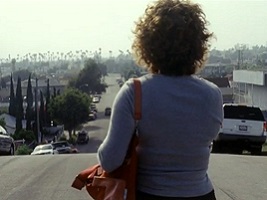
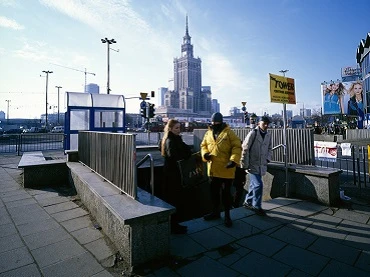
David Lamelas. Time as Activity, Warsaw, 2006
Held on 24, 25 Feb 2017
The artist David Lamelas (Argentina, 1946) has explored the ecosystem of relations determining the production, reception and meaning of the artwork in wide-ranging contexts. His work focuses on the crisis of the sculptural object inside exhibition space and the so-called post-media condition of the artwork related to an image’s different manifestations and times. Starting out in the Argentinian Neo-avant-garde of 1960, alongside artists and theorists such as Raúl Escari, Marta Minujín and Roberto Jacoby and their concerns with critically relating experimental art with the mass media, Lamelas’ career led him to become involved in the networks of European and North American conceptual art, particularly on the USA’s West Coast during the 1970s and 1980s. Consequently, his work stands out as one of the earliest and most systematic conceptual practices, primarily centring on film as a medium, language and device.
On this occasion, there will be a double screening of Lamelas’ work Time as Activity, a four-decade series started in 1969 with Time as Activity-Düsseldorf, a piece which sets out from the premise of filming the city in stationary shots in three locations at three determined times of day. Each one of these moments is demarcated by indicating the previous duration in minutes, whereby the real time of filming equals the fictitious screening time. After Düsseldorf, Lamelas has filmed in Berlin, London, Los Angeles, New York, Sankt Gallen, Buenos Aires, Warsaw, Naples and Milan, an international transit which relates the displacement of his own life. On the surface, the series shows the continuous and hyperconnected duration of global information; however, rather than simply reproducing the mechanics of entertainment, it develops an open and circumstantial account. Time, the latest merchandising and product of contemporary capitalism, is re-appropriated by the artist as an event, as an activity, which is at once limited and elusive.
The present screening also includes the premiere of a new section produced solely for the event: Time as Activity-Madrid, a reflection on the relationship between museum and city.
Framework
Programa Paralelo Argentina país invitado ARCOMadrid 2017
Curatorship
Chema González
Organised by
Museo Reina Sofía

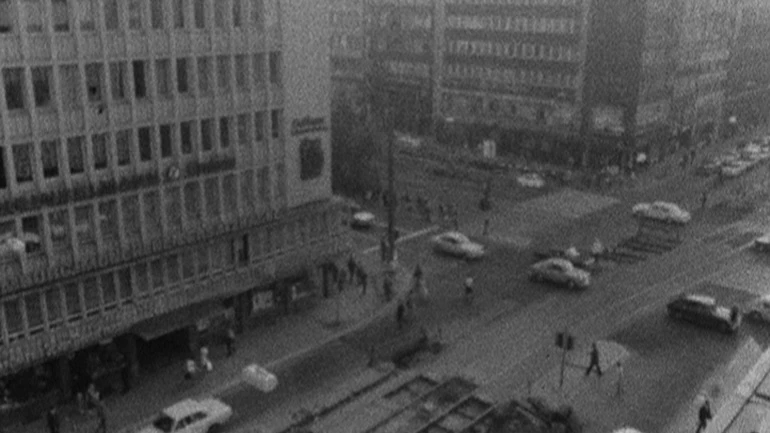
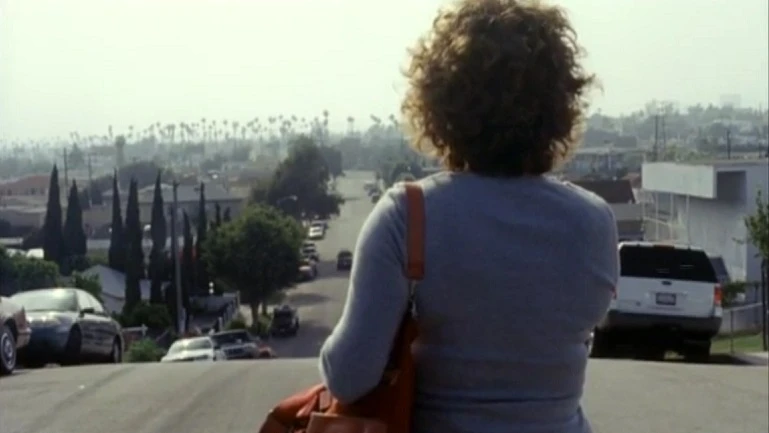
Más actividades

Difficulty. Forms and Political Effects of Deviation in Writing and Contemporary Art
23 February – 14 December 2026 – Check programme
Difficulty. Forms and Political Effects of Deviation in Writing and Contemporary Art is a study group aligned towards thinking about how certain contemporary artistic and cultural practices resist the referentiality that dominates the logics of production and the consumption of present-day art. At the centre of this proposal are the concepts of difficulty and deviation, under which it brings together any procedure capable of preventing artistic forms from being absorbed by a meaning that appears previous to and independent from its expression. By ensuring the perceptibility of their languages, difficulty invites us to think of meaning as the effect of a signifying tension; that is, as a productive and creative activity which, from the materiality of art objects, frees aesthetic experience from the representational mandate and those who participate in it from the passiveness associated with tasks of mimesis and decoding.
The economy of the referential norm translates the social logic of capitalism, where insidious forms of capturing subjectivity and meaning operate. In the early 1980s, and adopting a Marxist framework, poet Ron Silliman highlighted how this logic entailed separating language from any mark, gesture, script, form or syntax that might link it to the conditions of its production, rendering it fetichised (as if without a subject) and alienating its users in a use for which they are not responsible. This double dispossession encodes the political strategy of referential objectivity: with no subject and no trace of its own consistency, language is merely an object, that reality in which it disappears.
The political uses of referentiality, more sophisticated today than ever before, sustain the neoliberal-extractivist phase of capitalism that crosses through present-day societies politically, economically and aesthetically. Against them, fugitive artistic practices emerge which, drawing from Black and Queer studies and other subaltern critical positions, reject the objective limits of what exists, invent forms to name what lies outside what has already been named, and return to subjects the capacity to participate in processes of emission and interpretation.
Read from the standpoint of artistic work, the objective capture of referentiality may be called transparency. Viewed from a social contract that reproduces inequality in fixed identity positions, transparent in this objectivity are, precisely, the discourses that maintain the status quo of domination. Opposite the inferno of these discourses, this group aims to collectively explore, through deviant or fugitive works, the paradise of language that Monique Wittig encountered in the estranged practices of literature. For the political potency of difficulty — that is, its contribution to the utopia of a free language among equals — depends on making visible, first, its own deviations; from there, the norm that those deviations transgress; and finally, the narrowness of a norm which in no way exhausts the possibilities ofsaying, signifying, referring and producing a world.
From this denouncement of referential alienation, fetishisation and capture, Difficulty. Forms and Political Effects of Deviation in Writing and Contemporary Art turns its attention to the strategies of resistance deployed by contemporary artists and poets. Its interest is directed towards proposals as evidently difficult or evasive as those of Gertrude Stein, Lyn Hejinian, Theresa Hak Kyung Cha, Kameelah Janan Rasheed, Kathy Acker, María Salgado and Ricardo Carreira, and as seemingly simple as those of Fernanda Laguna, Felix Gonzalez Torres and Cecilia Vicuña, among other examples that can be added according to the desires and dynamics of the group.
The ten study group sessions, held between February and December, combine theoretical seminars, work with artworks from the Museo Reina Sofía’s Collections and exhibitions, reading workshops and public programs. All these formats serve as spaces of encounter to think commonly about certain problems of poetics — that is, certain political questions — of contemporary writing and art.
Difficulty. Forms and Political Effects of Deviation in Writing and Contemporary Art inaugurates the research line Goodbye, Representation, through which the Museo Reina Sofía’s Studies Directorship seeks to explore the emergence of contemporary artistic and cultural practices which move away from representation as a dominant aesthetic-political strategy and redirect their attention toward artistic languages that question the tendency to point, name and fix, advocating instead for fugitive aesthetics. Over its three-year duration, this research line materializes in study groups, seminars, screenings and other forms of public programming.
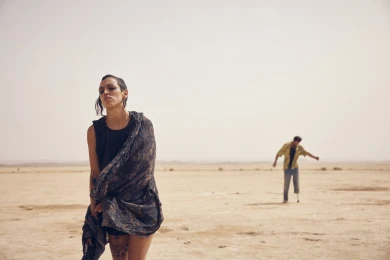
LANDSCAPE TRANCE. THE FILMS OF OLIVER LAXE
From 5 to 28 February 2026 – check programme
Over this coming month of February, the Museo organises a complete retrospective on the filmography of Oliver Laxe. The series converses with the work HU/هُوَ. Dance as if no one were watching you, an installation by the Sirāt director conceived specifically for the Museo Reina Sofía’s Espacio 1, and includes the four feature-length films Laxe has made to date, as well as his short films and a four-session carte blanche programme, in which he will select works that chime with his films and creative concerns.
Oliver Laxe’s gaze is one of the most unique in the contemporary film landscape, his film-making a resilient, spiritual and transcultural space imbued with a cultural and social nomadism that reflects his life and beliefs and which, fundamentally, puts forward an anti-materialist ethic to deal with our times. His filmography, characterised by profound spirituality, a time of contemplation and a close connection to nature and the sacred, approaches universal themes such as redemption and the meaning of existence via stories that extend across remote, rural and timeless landscapes, and with atmospheres that draw on western and police film genres. His protagonists, largely amateur actors, cross through physical territories while travelling on inner journeys consumed by guilt, the desire for community reintegration and the realisation of an end goal they ignore. Nature, particularly desert and landscape, is another character, a living, pantheistic presence that conditions and reflects human conflicts. Stretched-out time, a focus on sensory experience and allusions to ancient religion situate us in a meditative conception of film which seeks to be a manifesto to re-enchant the world.
Within the series, the carte blanche sessions see the film-maker choose four films which map his obsessions: Sergei Dvortsevoy’s Highway (1999), which crosses the plains of Kazakhstan via a small travelling circus; Artavazd Peleshyan’s film The Seasons (1975), an ode to the passing of time through landscape; Trás-os-Montes (1976), an ethnographic work of fiction, made by Antònio Reis and Margarida Cordeiro, spotlighting a Portuguese farming community and their rituals and purity of life; and Kaneto Shindo’s The Naked Island, which shows a family of four’s daily struggle in a natural paradise.

Cultural Work
Thursday, 12 February 2026 – 5:30pm
This series is organised by equipoMotor, a group of teenagers, young people and older people who have participated in the Museo Reina Sofía’s previous community education projects, and is structured around four themed blocks that pivot on the monstrous.
Session number two looks to approach film as a place from which cultural work is made visible and processes of production engage in dialogue with artistic creation. From this premise, the session focuses on exploring how audiovisual content is produced, assembled and distributed, from the hands that handle the images to the bodies that participate in its circulation. The aim is to reflect on the invisible effort, precarity and forms of collaboration that uphold cultural life, that transform the filmic experience into an act that recognises and cares for common work.

Alberto Greco. Viva el arte vivo
Tuesday, 10 February 2026 – 7pm
In conjunction with the opening of the exhibition Alberto Greco. Viva el arte vivo, Fernando Davis, the show’s curator, and Amanda de la Garza, the Museo Reina Sofía’s deputy artist director, will converse in the Nouvel Building’s Auditorium 400 on the life and work of the Argentinian artist, a core figure in experimental avant-garde art.
The title of both exhibition and conversation originates from the proclamation “Long Live Arte Vivo” Alberto Greco (Buenos Aires, 1931— Barcelona, 1965) disseminated around the streets and on the walls of Rome. For Greco, arte vivo was an art of the future, an art based on a set of irreverent and untimely gestures, of adventures open to unpredictability melding with life, and which began in 1962, prior to his coining of the term “vivo-dito”. In his Manifiesto dito dell´arte vivo (Dito Arte-Vivo Manifesto), which he pasted on the walls of Genoa, Greco encouraged new contact “with the living elements of our reality: movement, time, people, conversations, smells, rumours, places, situations”. He would also burst into the everyday of Madrid’s streets as he convened a “vivo-dito moment”, culminating in the burning of a canvas painted collectively in Madrid’s Lavapiés neighbourhood.
In addition to founding arte vivo, Alberto Greco was an informalist painter, a queer flâneur, a poet and sometime actor. This intense journey of Greco’s life and art is closely connected to the migrant route he embarked upon in 1950 in Buenos Aires, taking in Atacama and Humahuaca, Paris, Rio de Janeiro, São Paulo, Genoa, Rome, Madrid, Piedralaves, New York and Ibiza and ending abruptly in Barcelona, where he took his own life shortly after writing his final great work, the novel Besos brujos (Bewitching Kisses, 1965).
These inaugural conversations, part of the main working strands of the Museo’s Public Programmes Area, aim to explore in greater depth the exhibition narratives of the shows organised by the Museo from the perspective of artists, curators and specialists.
![Basel Abbas y Ruanne Abou-Rahme, At Those Terrifying Frontiers Where the Existence and Disappearance of People Fade Into Each Other [En esas fronteras aterradoras donde la existencia y la desaparición de personas se disuelven entre sí], 2019](https://recursos.museoreinasofia.es/styles/small_landscape/public/Colecci%C3%B3n/abbasabourahme.png.webp)
Gaza and Aestheticide
Tuesday February 10, 2026 – 16:00 h
“This seminar examines the systematic destruction of Palestinian collective sensibility — what we might call ‛aestheticide’ — that has accompanied Israel’s genocide and ecocide in Gaza, and considers the conditions of artistic practice in its aftermath. Over more than two years, the demolition of universities, archives, museums, and libraries has not only erased cultural and intellectual infrastructure but has also targeted the very possibility of representation itself. The destruction of a people has been accompanied by the destruction of their image, their history, and their capacity to be known: reportage, scholarship, and cultural memory have been deliberately undermined, with media institutions, universities, and museums often complicit in this repression. Gaza consequently functions as a rehearsal space for a possible global future — of fascism, post-liberal authoritarianism, militarized borders, and AI-enabled warfare —, a laboratory for an emerging world order. What, then, becomes of critical analysis and resistance under these conditions? And what becomes of aesthetics and politics?”
—T.J. DemosThis seminar takes place thanks to the art historian’s invitation to Spain by the Miró Foundation. In the context of the museum, it engages in dialogue with a broader line of work on the climate emergency and decolonial perspectives developed within the Museum of the Commons project (2023–2026) of the L’Internationale network, of which the Museo Reina Sofía is a member; as well as with some of the questions that animate the study group Aesthetics of Peace and Desertion Tactics. Finally, it is also embedded in a wider strategy of support for and commitment to the artistic and discursive practices of Palestinian artists and cultural practitioners, most clearly reflected in the TEJA network.